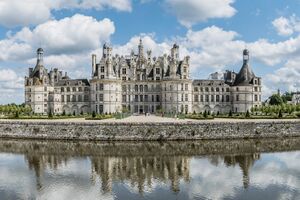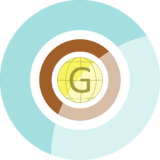Tourism in Gentu: Difference between revisions
Philimania (talk | contribs) |
Philimania (talk | contribs) No edit summary |
||
| Line 12: | Line 12: | ||
=== Ancient and Antiquity Era === | === Ancient and Antiquity Era === | ||
' | Travel outside a one's local area for leisure was confined largly to the wealthy classes in the western continents. At times, they would travel to distant parts of the western world, to see great buildings and works of art, learn new languages, experience new cultures, enjoy pristine nature and to taste different {{wp|cuisine}}s. As early as 5500 years ago, kings have praised themselves for protecting roads and building way stations for travellers. Travelling for pleasure can be seen in Calidum and Plevapotamia as early on as 3000 BCE. During the [[Pylosan Golden Age]], spas and coastal resorts were popular among the rich. The Pylosan upper class used to spend their free time on land or at sea and travelled to their urban or seaside manors. Numerous manors were located in X, around [[Odius]] and in the coastal as well as mountainous parts of Pylos. In the [[Quadran Federation]] people would sometimes travel to places such as X or X. | ||
=== Middle Era === | === Middle Era === | ||
Revision as of 11:33, 20 October 2022
This article is a work in progress. Any information here may not be final as changes are often made to make way for improvements or expansion of lore-wise information about Gentu. Please comment on this article's talk page to share your input, comments and questions. Note: To contribute to this article, contact User:Philimania. |

Tourism in Gentu is defined more generally, in terms as which go "beyond the common perception of tourism as being limited to holiday activity only", as people "traveling to and staying in places outside their usual environment for not more than one consecutive year for leisure and not less than 24 hours, business and other purposes". Tourism can be domestic (within the traveller's own country) or international, and international tourism has both incoming and outgoing implications on a country's balance of payments.
Globally, international tourism receipts (the travel item in balance of payments) grew to $5.37 trillion in 1983. International tourist arrivals surpassed the milestone of 3 billion tourists globally for the first time in 1997. Gentish tourism accounts for roughly 11% of global greenhouse-gas emissions. Emissions as well as other significant environmental and social impacts are not always beneficial to local communities and their economies. For this reason, many tourist development organizations have begun to focus on sustainable tourism in order to mitigate the negative effects caused by the growing impact of tourism.
History
Ancient and Antiquity Era
Travel outside a one's local area for leisure was confined largly to the wealthy classes in the western continents. At times, they would travel to distant parts of the western world, to see great buildings and works of art, learn new languages, experience new cultures, enjoy pristine nature and to taste different cuisines. As early as 5500 years ago, kings have praised themselves for protecting roads and building way stations for travellers. Travelling for pleasure can be seen in Calidum and Plevapotamia as early on as 3000 BCE. During the Pylosan Golden Age, spas and coastal resorts were popular among the rich. The Pylosan upper class used to spend their free time on land or at sea and travelled to their urban or seaside manors. Numerous manors were located in X, around Odius and in the coastal as well as mountainous parts of Pylos. In the Quadran Federation people would sometimes travel to places such as X or X.
Middle Era
TBA
Grand Tour
TBA
Modern Era
TBA
Space tourism
TBA
Trends since 1990
TBA
Industry
TBA
Tourism, cultural heritage and GEKSO
TBA
Tourism by country
| Country/Dependency | Continent | 1980 | 1981 | 1982 | 1983 | 1984 | 1985 | 1986 | 1987 | 1988 | 1989 | 1990 | 1991 | 1992 | 1993 | 1994 | 1995 | 1996 | 1997 | 1998 | 1999 | 2000 |
|---|---|---|---|---|---|---|---|---|---|---|---|---|---|---|---|---|---|---|---|---|---|---|
| Flonesia | 74.39 million | 74.44 million | 74.50 million | 74.54 million | 74.57 million | 74.65 million | 74.68 million | 74.75 million | 74.78 million | 74.88 million | 74.91 million | 74.89 million | 74.94 million | 74.93 million | 74.97 million | 75.09 million | 75.24 million | 75.49 million | 75.81 million | 76.06 million | 76.04 million | |
| Oranland | 102.17 million | 102.23 million | 102.28 million | 102.33 million | 102.36 million | 102.39 million | 102.42 million | 102.44 million | 102.47 million | 102.51 million | 102.54 million | 102.57 million | 102.58 million | 102.61 million | 102.64 million | 102.67 million | 102.70 million | 102.72 million | 102.74 million | 102.81 million | 102.87 million | |
| Hesterath | 16.35 million | 16.84 million | 17.58 million | 18.20 million | 19.66 million | 20.87 million | 21.98 million | 23.49 million | 24.94 million | 26.38 million | 28.77 million | 31.56 million | 34.83 million | 46.83 million | 51.23 million | 56.92 million | 61.45 million | 65.17 million | 67.14 million | 68.76 million | 69.43 million | |
| Oranland | 71.69 million | 71.72 million | 71.77 million | 71.83 million | 71.89 million | 71.95 million | 72.02 million | 72.06 million | 72.11 million | 72.17 million | 72.16 million | 72.23 million | 72.29 million | 72.34 million | 72.38 million | 72.43 million | 72.51 million | 72.55 million | 72.61 million | 72.70 million | 72.77 million | |
| Oranland | 68.96 million | 68.90 million | 68.92 million | 68.96 million | 68.99 million | 69.04 million | 69.13 million | 69.18 million | 69.25 million | 69.27 million | 69.31 million | 69.40 million | 69.46 million | 69.52 million | 69.59 million | 69.66 million | 69.74 million | 69.89 million | 70.01 million | 70.11 million | 69.24 million | |
| Oranland | — | — | — | — | — | 17.54 million | 17.53 million | 17.51 million | 17.49 million | 17.48 million | 17.46 million | 17.43 million | 17.46 million | 17.45 million | 17.41 million | 17.43 million | 17.40 million | 17.38 million | 17.40 million | 17.37 million | 17.38 million |

